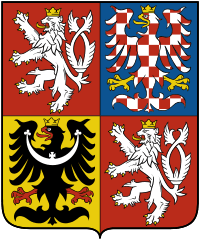Positive parenting program Czech Republic „Triple P“

- ←
- →
Published
Updated 2-8-2023
- Information update
- Information update (website, social media)
| Region | National coverage |
|---|---|
| Title of the Programme | Health |
| Title of the Project | Positive parenting program Czech Republic „Triple P“ |
| Number of the Project | ZD-PDP1-001 |
| Project Promoter | The Ministry of Health of the Czech Republic |
| Project Partner from Donor State | UiT The Arctic University of Tromso, RKBU North |
| Status | Estimated project duration: 11/2020 – 04/2024 |
| More Information | Target group: Children and youth (0-17 years), general public Web pages: https://triplep.cz/en/Uvodni-stranka.html Social media: https://www.instagram.com/triplep_cz/ |
| Total Eligible Costs | 1 080 660 EUR |
| Grant | 1 080 660 EUR (100 %) |
Project description:
The aim of the project is to implement the Triple P parenting programme aimed at parents of children aged 6-12 years who display problem behaviour or are at risk of it, and to create a basis for sustainability in further validation and dissemination of evidence-based programmes in the field of children's mental health.
There isn’t any established program improving parenting skills in the Czech Republic that is evidence based and provides evaluation of its effectiveness through measurable results. The project Triple P“ aims to fill the gap in the mental health care for children. It is a universal prevention program designed to increase parenting' skills and confidence in order to avoid serious behavioural and emotional problems in children.
The pilot programme will take place in five selected centres in the country and should train professionals from the collaborating centres. Centres are understood to be health care providers, but also educational institutions and family social support centres.
The project will improve local mental health capacities, increase the competencies of professionals, reduce problematic behaviour of children whose parents will be trained in the Triple P programme and, last but not least, raise public awareness of the possibilities to support parents and other involved persons who need support in bringing up their children.

